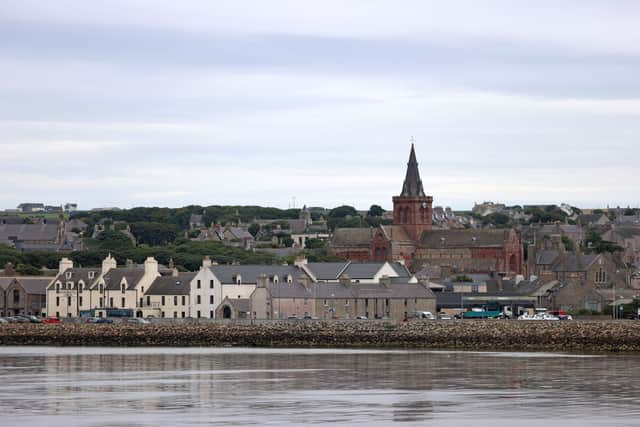Orkney cancer gene: Mutation which increases risk of breast and ovarian cancer linked to Orkney islands
and live on Freeview channel 276
Scientists from the universities of Aberdeen and Edinburgh found that one in 100 people with grandparents from the islands off the north-easten coast of Scotland have a mutation of the gene BRCA1. The gene mutation was repeatedly spotted in women from Orkney who have breast and ovarian cancer.
Scientists believe the gene likely came from one of the founding members of the Orkney island of Westray, which has a population of under 600 people. Most of the women with the gene could trace their ancestry back to Westray.
Advertisement
Advertisement
Planning is now underway to offer free testing for the gene variant to anyone living in the Orkney islands with a Westray-born grandparent. Testing will be available regardless of family cancer history.
Professor Zosia Miedzybrodzka, director of NHS North of Scotland, said: “Developing cancer is not solely down to carrying the BRCA1 variant alone. There are many complex factors, and some people with gene alterations will not get cancer. However, we know that testing and the right follow-up can save lives.
“Many people who have the gene alteration are unaware of it. Not everyone wants to have a genetic test that looks into their future. In the long run we want to make a test available to those with Westray grandparents who want to know if they have the gene variant.


“As it is hereditary, the gene variant can affect multiple members of families. Risk-reducing surgery, breast screening with MRI from age 30 and lifestyle advice can all improve health for women with the gene. Men do not need to take any particular action for themselves, but they can pass the gene onto female descendants.”
Advertisement
Advertisement
Professor Miedzybrodzka recommended risk-reducing surgery, breast screening with MRI from the age of 30 and lifestyle advice to improve the health of women with the gene mutation. The NHS recommends talking to your GP if cancer runs in the family, or if you are worried about your own risk.
